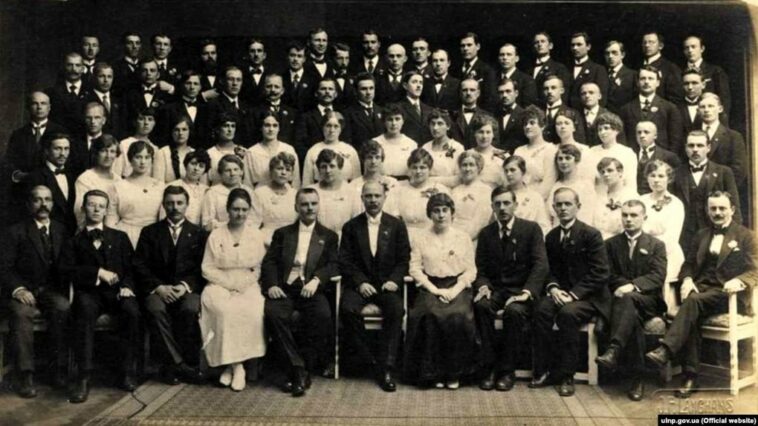In the early XX century, the world did not know about Ukraine as much as it does today: it was considered either “part of indivisible Russia” or the „Russian sphere of influence”. However, one song changed this discourse.
In 1919, Symon Petliura, Head of the Directorate, Chief Otaman of the Army and Navy of the Ukrainian National Republic (UNR) initiated the creation of Ukrainian Republican Capella directed by Ukrainian composer and conductor Oleksandr Koshyts. As an institution, it aimed to promote the international recognition of Ukrainian independence and Ukrainian music culture in the world. Tina Peresunko, a researcher of Capella’s role in Ukrainian cultural diplomacy, mentions that in 1919-1921 it gave over 200 concerts in 45 European cities.
Ukrainians and Ukrainian culture were discussed in the press all over Central and Western Europe. One of the most iconic performances of Ukrainian Republic Capella was “Shchedryk”, Ukrainian shchedrivka (Christmas carol) arranged by Ukrainian composer Mykola Leontovych, which is now known globally as „Carol of the Bells”.
Here is how the Prague conductor Yaroslav Krzychka described Oleksandr Koshyts’ chapel after the concert in Czechoslovakia in 1919:
“The Ukrainians came and conquered. Unfortunately, we have not known about them for too long and were deeply offended when we unknowingly and unintentionally associated them with the Russian people against their will. Our desire “for a great and indivisible Russia” is a weak argument against nature, against the will and feelings of the entire Ukrainian people, for which independence, just like for us, means everything.” Critics, journalists and politicians from all over the world admired “the amazing poetry and music of the Ukrainian soul” and Ukrainians’ aspirations for independence. During the tour, Western press was filled with amazed headlines, such as “Long live Ukraine! Long live Koshyts!” and portrayed the capella’s conductor as a “magician” who “won hearts”. The key diplomatic mission of the project – lobbying for weapons and medicines for the Ukrainian People’s Republic was not complete since Ukrainian sovereignty was not recognized in the world at the time, but the cultural diplomacy proved the world “how lucky it is to be Ukrainian” and impressed the public both in Europe and in the US, where the capella performed Ukrainian lullaby Oy Khodyt Son Kolo Vikon” (“The Dream Passes By the Windows”), which inspired George Gershwin’s Summertime.
Here is an example of the Brazilian review of 1923: “Sing, enslaved Ukraine, sing, twitter! The spring you are waiting for will come.” Despite the numerous attempts of Russian diaspora to discredit Ukrainian singers, the concerts were sold out. Having tried to disrupt the concerts, write swear words on posters, Russians changed the strategy so that Russian choirs started performing Ukrainian folk songs as “Russian” – and this shows how long Russian tradition of cultural appropriation in fact is. However that could not stop the phenomenal success of the Capella, and Shchedryk, which is now associated with Christmas far beyond Ukraine.

